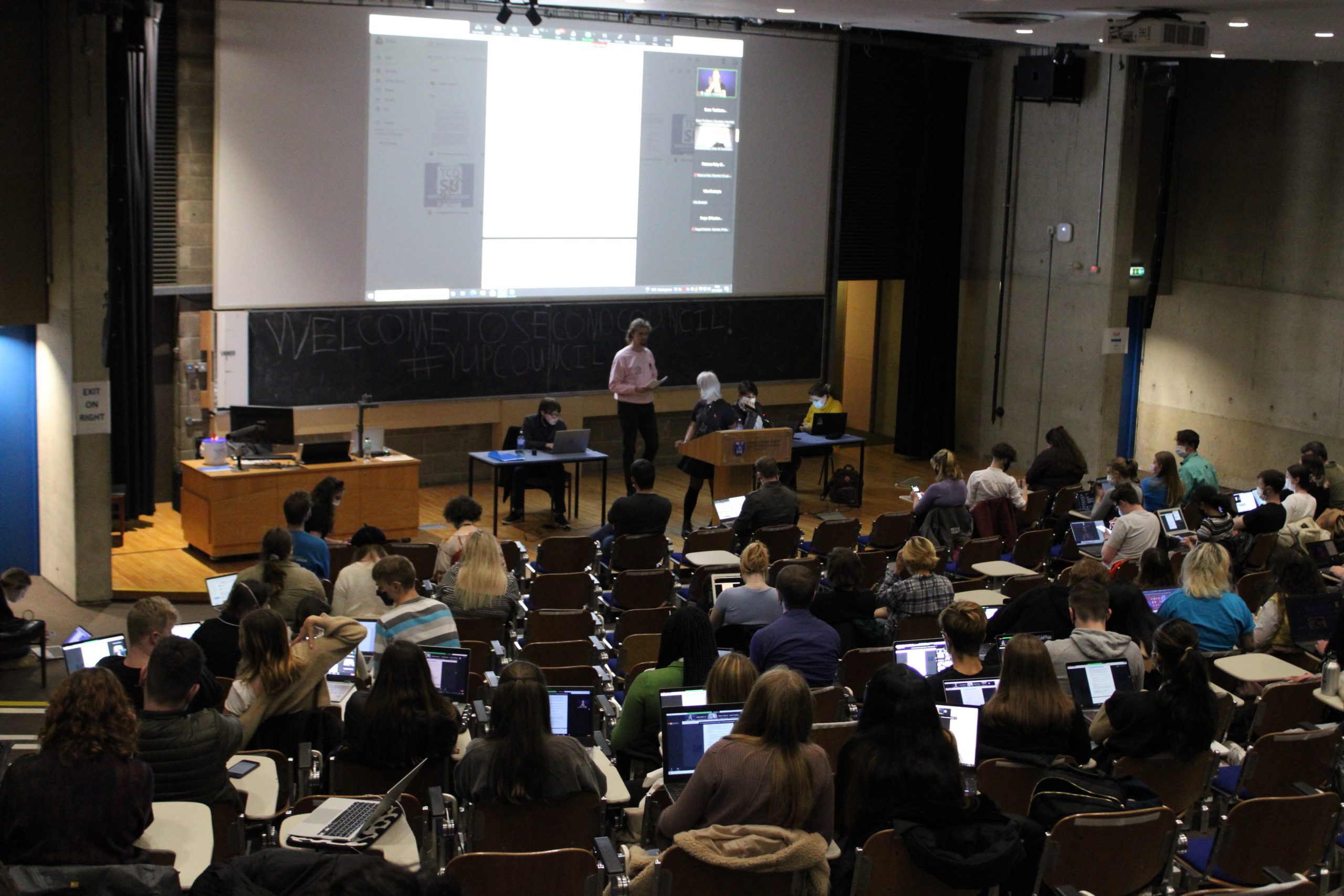Trinity College Dublin Students’ Union (TCDSU) is to allocate €30,000 from its Higher Education Authority fund to be allocated to support international students’ recovery from the pandemic.
This was outlined in the International Student and Asylum Seeker Access Provision (ASAP) Scholar Fund Proposal.
The motion mandates that €20,000 be used this year and €5,000 be disbursed for each of the following two years.
The motion was proposed by Welfare and Equality Officer Sierra Muller-Owens and seconded by International Students Officer Dylan Krug.
During discussion of the proposal, a procedural motion K was called to move this motion to a future council over concerns on whether the TCDSU solicitor had been contacted. Muller-Owens urged Council to vote against thus saying that “this money has been used many times for student services. This meets that criteria.”
There was discussion over whether a previous council meeting had called for the union’s solicitor or College’s solicitor to be consulted.
She said that “students need funding more than ever” and called the motion K “completely unnecessary” as the College solicitor “has no control over the fund”.
Undergraduate Studies Committee (USC) Representative Yannick Gloster spoke in favour of the motion K saying that the “union solicitor should be contacted”.
“I would like the money to be spent in a way that is legally appropriate,” he said.
Krug said that it is “essential that we vote on this [tonight]”. “We want to offer financial aid to the international student community.”
TCDSU President Leah Keogh confirmed that “there’s money here” to be spent by the union on anything that constitutes “student services”.
Speaking to Trinity News ahead of the meeting Muller-Owens said that “one of [her] goals coming into this year was to create a Non-EU international student fund to support students who have a higher financial burden when coming into college”.
“Although non-EU students pay large amounts of money, many of us are not wealthy enough to have enough savings to pay for everything out of pocket.”
She elaborated saying; “For example, I took out €75000 in student loans and worked part time during my entire degree to afford college and accommodation.”
“Additional to higher costs of fees, international students also face barriers like needing €3000 in a bank account when entering the country and needing to pay for a visa.”
She noted that “this fund is also available to Asylum Seeker Access Provision Scholars who face transportation barriers and additional costs to education that their scholarship does not cover”.
“Especially after the difficult year with COVID and the lack of scholarship funding for these students, it is imperative that they are supported by their union.”
Speaking to Trinity News, Krug said that this motion was “conceived and written by Sierra ”. He noted that it is “a new way to offer financial aid to a cohort of students who otherwise have little support from the college”.
Krug explained: “money from this fund could cover the €300 fee to renew a residency permit, pay for a couple weeks of rent or just chip away at those astronomical tuition fees.”
He believes that “international students and ASAP scholars deserve support as much as any other student” and “through this motion the SU is able to offer some tangible relief”.
The motion noted that “international students pay more than twice as much for the same education as those who can avail of the free fees initiative” and “non-EU international students have seen their fees increase by 3% most years during Patrick Prendergasts’ provostship”.
The motion also said that “COVID-19 impacted international students in unique ways and that non-EU international students never received €250 from Minister Harris’ refund scheme”.
“International students and ASAP scholars face unique costs to education like visa costs, medical insurance and expensive travel costs.”
The maximum amount of money that an individual student can apply for is €400 per year and applications are to be submitted to the TCDSU Communications and Marketing Officer, who will anonymise them.
After applications are anonymised, they will be reviewed by the Welfare and Equality Officer, the International Student Officer and the Ethnic Minorities Officer.
Funding is to be overseen and distributed by the TCDSU Administrative officer and any student who is registered as an international student or who is a recipient of the ASAP scholarship may submit an application to the fund.
The fund may be used for expenses such as visa applications, travel to and from college, rent, groceries and medical insurance.
The fund will be reviewed twice in May 2022 and May 2023 by the Welfare and Equality Officer, International Student Officer and the Ethnic Minorities Office and any remaining funds will be allocated to the next year’s applications.
Also brought to Council this evening was a discussion item about “Trinity’s Ethics and Investments” from SF PPES Class Representative László Molnárfi.
He questioned the ethics of Trinity’s investments and proposed that “we challenge the university’s status as a university of sanctuary”.
Keogh noted that this issue was “raised on multiple occasions” and they are “currently working on an action plan”.
Additional reporting by Bella Salerno, Jamie Cox, Leonard Mussler and Jack Kennedy.






